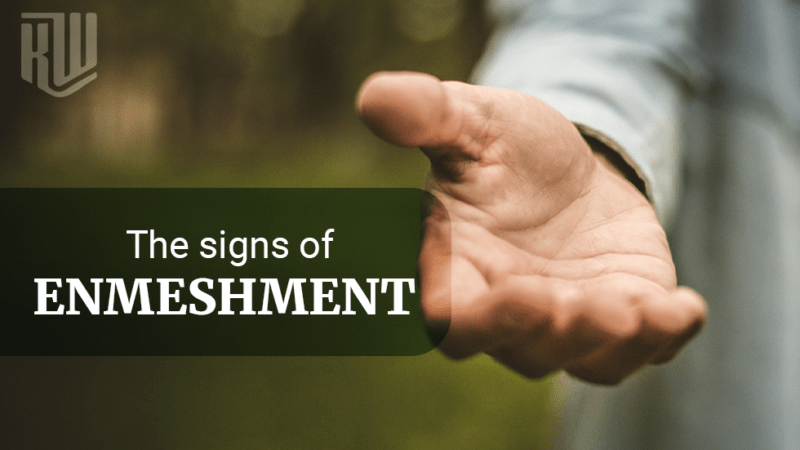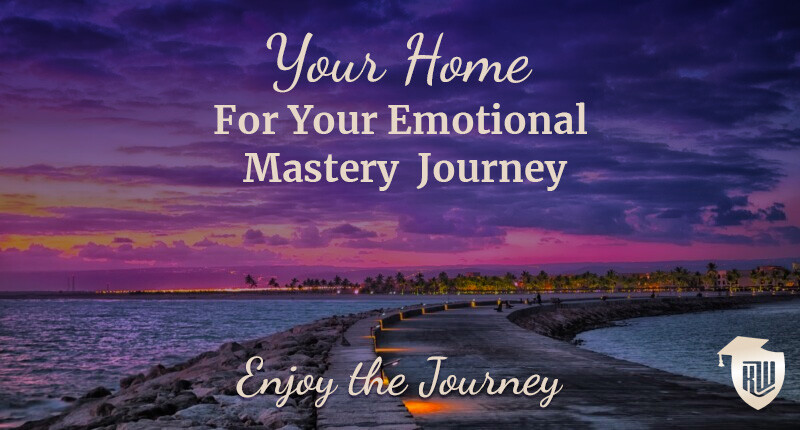In this article, I’m talking about the signs and characteristics of enmehttps://kennyweiss.net/what-is-enmeshment-2/shment. I’ve spoken about what it is (because many people are unaware). Breaking down the differences between enmeshment and codependence in previous articles and videos. I encourage you to check out those videos.
But now we are getting into how it shows up in your life.
When we learn new things about ourselves, it can be not easy – especially if we were enmeshed. The general reaction is shame or low self-worth.
If the feeling of shame hits you, I’ll use the old metaphor of a grape becoming wine to give you hope – I want you to hold onto something.
Think of a grape. On its own, it’s perfect. Great color, shape, and taste.
Perfectly imperfect, just how it is. How does it become wine? First, it must be crushed, pulverized, and completely disintegrated. Each grape experiences this process together. They are sharing in that process.
Then they are fermented and allowed to sit and rest before they mature into wine.
That’s all of us. We are all born perfect like a grape, nothing wrong with us. But life and parenting crush us. There’s only one way to reclaim ourselves:
that crushing and pulverization. To become wine, first, we have to understand what happened to us with others. Then, like wine.
we must gain additives (skills and tools) to turn ourselves into our potential. We then need a period of rest where we navigate the change and new knowledge.
That is how it all comes together to form our best version. That is the recovery process that we must all go through. Please keep this metaphor in mind as I go through the signs of enmeshment, as they may be difficult to hear.
Here are the signs of enmeshment:
- They’re driven to save as many people as they can, even if it’s just one.
They have the impression that they require assistance from a third party.
They are disconnected from reality. what they think and feel about themselves is not right. Often this comes in the form of being overly nice (see below). - They are overly nice. The way they are nice is incredibly manipulative and meant to get attention .
- It is not freely given, but they are not aware of this truth. For an enmeshed person, a simple “thank you” is not enough; it feels rude.
- Often, they have to get the last word in. They don’t understand that constant niceness is not genuine.
- They have a history of dysfunctional and chaotic relationships.
- Divorce, narcissists, abusers are common in their history. They have general disarray and chaos in their life.
While in a relationship,
-
- They lack friends and activities. Except when they’re with their partner, parent, or child, they’re all by themselves. They try to find methods to connect.
There is no stopping them from thinking of each other.. There is no freedom.
When their partner is sad, they can’t feel happy. They don’t have any limits. They can’t keep their tempers in check and can’t feel real empathy.
Instead of understanding, they feel the same way.
In relationships, they hold in their anger and sadness. They can’t speak up to say what they need and what they want.
Often they silently resent the other person. Sometimes they are needless and wantless because that was the role they were placed in during childhood.
- They lack friends and activities. Except when they’re with their partner, parent, or child, they’re all by themselves. They try to find methods to connect.
- They can’t say no or set boundaries. However, I have an article and video on how to say no – if you struggle with this, please check it out.
- They have constant health problems. Enmeshed people get their power back by becoming sick or hurt. Headaches, autoimmune disease, and arthritis are some common illnesses that are self-inflicted .
- The science behind it is overwhelming. Genes do not mean you are guaranteed to have an ailment; a gene requires a specific environment to be activated.
- The emotional turmoil in a person’s life is the most common activator. I experienced the veracity of this myself. Growing up.
- I had no health issues. After I found my mom passed out naked on the toilet, I was in and out of hospitals all of high school.
They could never find out what was wrong.
- Finally, I discovered it was all self-induced. If I were sick or hurt, my mom would stay sober to take care of me. That’s what most everyone who is constantly sick or hurt is doing.
- Check out the book When the Body Says No by Dr. Gabor Mate – it lays out the studies and science showing our emotional condition determine our health.
- Sadly, our doctors aren’t taught about emotional trauma.
- They give pills to fix anything and everything. Healing needs to be all-inclusive with mind and body. I’ll end this point with an example: there’s less than a 3% difference between an antidepressant and the placebo pill.
- Your belief in the system gives you the benefit. And pharma companies are trying to get rid of these tests. We have been robbed of the root solution.
They avoid intimacy and connection in relationships.
- They tend to feel smothered when asked for intimacy or help. Showing any sign of care could make them uncomfortable.
- As a result, they don’t want to have deep discussions, and they run away from arguments.
- They are afraid to support their partner for fear they may alienate their parents.
- So they’ll cancel plans for their parents.
- In my first marriage, everything was run by my ex-wife’s parents. We had to get their approval for everything. So you become a prisoner to their parents.
- They have addictions, especially to food.
- It makes me sad to see society normalize obesity. It’s a maladaptive excuse to avoid unaddressed pain.
- For an average person: it takes 1500 calories to feed us. Everything we eat after that is from emotion.
- Diets don’t work.
- The single greatest determinate of your weight is your emotional condition .
- This has been shown in many studies. We overeat because we are in emotional pain. Other addictions are familiar too: alcohol, tobacco, working, sex.
They use it all to medicate.
- A healthy adult is moderate and doesn’t live at the extreme – enmeshed people do.
- They have a fear of conflict and being abandoned
- . Therefore, the enmeshed avoid fights to avoid being left alone.
- If their partner has ambitions or goals that are unrelated to them, they may feel intimidated.
If you don’t stay with them, they’ll play the martyr and demand that you focus on them.
They want to be in charge. They aren’t only a dictatorship. But they feel responsible for everyone and everything. They blame themselves for everything or sometimes take no responsibility at all. - Their will has become disabled from childhood. Over-owning a situation is an attempt to gain control.
The following traits will be specific to an empath.
Having the ability to connect is great but being an empath goes too far. They become far too consumed with others. People will wear it as a badge of courage.
A healthy adult has empathy where they relate but do not become the situation. Being an empath is destructive, invasive, and a sign of dysfunction.
They lose themselves and cannot stay contained.
- Other people instantly or easily shift their emotions.
- They feel guilt, shame, or anxiety. The empath cannot do something for themselves without feeling guilty.They don’t understand the concept of a healthy boundary.
As a result, individuals typically end up with narcissists or abusers since they don’t feel like they have a say in their lives.
Their identity is unknown to them. It’s a wonder what they think, like, and don’t like. - As a result, they have difficulty making decisions. That’s why they may have poor relationships or careers.
- They personalize. The empath makes everything about themselves and turns everything into criticism (even though it may not have been about them). As a result, they quite often feel attacked about everything.
I hit on what I believe to be the most prevalent signs that will resonate with you all. Additionally, I urge you to read When the Body Says No by Dr. Gabor Mate if you would like to learn more about the connection between emotions and our health and The Emotional Incest Syndrome by Dr. Patricia Love to help you further understand the inner workings of enmeshment.
I hope you will start on the journey of recovery. Be one of the grapes to jump in the circle and join others.
If you are looking to begin your journey to heal enmeshment, my masterclasses will provide you with the knowledge, skills, and tools to do just that!
If you prefer audible, this is for YOU!





 The Greatness University
The Greatness University 
